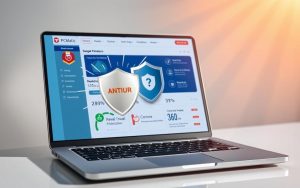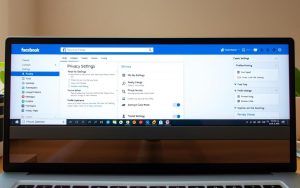Table of Contents
In its infancy, the internet has created many information systems that enhance processes we use every day. However, while the web was still developing, it got a reputation of being a free space, where anonymity has been both a blessing and a curse. While the ability to reach goods, services, and valuable information has become the norm in our everyday lives, the early stages of the web had its fair share of hackers and cybercriminals. With little material to protect the browsing experience, only technically proficient users could avoid the mischievous dangers of the internet.
Fast forward to 2024, while the web is still not perfect, the introduction and widespread use of the HTTPS protocol, paired with centralization of traffic towards the biggest tech companies, the average internet users still encounter cyber threats, alongside the rise of invasive tracking practices. The value of unique user data and its applicability has been the main force that led to excessive tracking of users across many different platforms.
As a result, we ended up in a world where dependency on IT tools and solutions comes with a cost of user privacy. Both the discomfort of being watched and the looming issue of cyber threats have forced web safety enthusiasts to look for tools privacy tools to ensure secure and anonymous browsing. This article covers the best options for protecting your identity online: VPNs, user-agent switchers, and residential proxy servers as key web privacy tools that minimize online tracking. Here you will learn about the essential use cases for the provided solutions. For example, residential proxy servers are praised for their simplicity and versatility for both private users and business clients. Keep reading to learn more about the most common tools for safe browsing sessions.
Key Insights on Online Privacy
The ever-growing concern on web privacy is well highlighted in online privacy statistics in 2023, covering user thoughts and behaviors on the modern browsing experience:
- 77% of users worry about how their data is used online.
- 85% of web surfers want to take the initiative to protect their privacy online.
- 81% of users feel like they have no impact over how much data social media collects.
- 72% of users feel that all of their actions online are being tracked by advertisers.
- 81% of people say the potential risks they face from companies collecting data outweigh the benefits.
Why does My Web Connection need Protection?
Each internet connection follows the rules and principles defined in the Internet Protocol. In short, every digital device has an IP address for its private network. When a computer sends a data packet to a recipient server, the information packets reach the default gateway (your router) and retrieve a public IP address, your public identity that will be used to communicate with the rest of the internet.
Private IP and public IP addresses are not the same. A public IP address is supplied by the Internet Service Provider (ISP). If this identity gets blocked by a specific server, getting a new public IP can take time, meaning your web access can be restricted for a while.
Changing your public IP address with a web privacy tool lifts imposed restrictions and anonymizes your connection. At the same time, communicating with the provided IP is risky, because cybercriminals can use it and attempt to infiltrate your network, or launch DDoS attacks to sabotage your web connection. That’s right, all it takes is your public IP address to overload and deny internet access. That is why, most businesses use residential proxy servers or VPNs to never disclose the company’s public IP address to unknown parties.
Although cybercriminals need more vulnerabilities to steal data and wreak havoc on your internal network, it all begins with an unprotected public IP address.
Most Common Web Privacy Tools
Proxy Servers
Proxy servers act as an intermediary station between your device and the internet. When accessing the web through proxies, the delivered connection requests take an extra stop before forwarding the data to the intended target. The website’s response treats the proxy server as the original sender of the request back through the proxy server. This process effectively masks a public IP address, changing the identity and approximate geolocation of the sender.
Most proxy services come in two main types: datacenter and residential proxy servers. Datacenter proxies maintain high internet speeds but have no affiliation with an ISP. Because of that, recipients can see this information in the delivered connection request, and deny access simply because these addresses are not provided by an ISP, which is often seen as a stamp of approval that the connection is sent by a real user.
Residential proxy servers are more expensive, but their addresses are borrowed from real residential users, which lets them blend perfectly with regular web traffic. With millions of available addresses, businesses and private individuals can protect all connections through numerous residential proxy servers to apply location and identity changes with just a few clicks.
Virtual Private Networks (VPN)
VPNs are a slower, more expensive, but more secure alternative, albeit at the cost of privacy. The amount of available addresses is smaller, and setting up the connection often requires additional software. However, VPNs still hide your original public IP address, and it also creates an encryption tunnel between your device and the VPN server, stopping onlookers from stealing your data while it is en route.
Web Browser Alternatives
Powerful browsers like Brave or ToR browser have built-in tools to block trackers, ads, and cookies, as well as basic IP masking features. ToR browser takes privacy a step further, by routing your internet traffic through a series of volunteer-operated nodes, encrypting it multiple times to hide your identity at the cost of internet speed.
Conclusion
In a world where crude cyber threats are replaced with sophisticated tools for user tracking, using anonymity tools for internet access is no longer convenient, but necessary. However, with the help of residential proxy servers, VPNs, and smart software changes, we can hide private information from the prying eyes of tech giants and cyber criminals.









